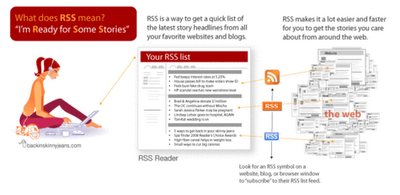There is the Athur Strain description of bloggers which is: ... - almost always unfair - that they are sad people sitting in their underwear rooted in front of a computer all day writing about how much worse their fungal nail infection is getting to an audience of three friends. - He does back off a lot when discussing political bloggers.Why should a person of a 'certain' type, who may well not have used bulletin boards or usenet a decade (OK two decades ago) understand the idea of online social media?
Without that grounding and the time one really needs lurking in this space, Blogs are astonishing and bewildering. You see, I fall into the trap... lurk, space, 'social media' .... I use the jargon without a thought and, in the process widen the gap.
I get the impression that there is body of opinion that thinks that a blog is some form of rambling inconsequential chatter, no doubt this is true in many cases, but not true for most.
A serious blog such as '
CorporatePR' is a genre many middle and senior managers do not come across by chance, or have time to read because they are complex and most posts require time as with most worthwhile literature.
For many, understanding that a person, in the midst of their more serious occupation, might divert
to an aside about an incident in their lives, is a difficult concept.
They see a comment, and without looking back at the blog topic, assumes every post is on topic, a serious, focused journal.
They forget that Gibbons, Chaucer, Lao Zi, Amis, Belloc, Eliot, Johnson in fact almost every philosopher and essayist also wrote asides even in the margins of their most serious works.
They cannot translate this into what we, with our jargon, would call an 'off-topic' 'rant'.
Thus, some seek to engage in conversation outside the prime interest (topic) of a blog, perhaps ignorant a wider and more profound contribution and the thrust of a blog.
What sort of 'sad' person would make comments like these on a blog:
Sort of kinky stuff for the average middle manager..... Untill of course you see who the author is and the read the posts (articles).
There are several things we can take out of this:
1 It is not well understood by a section of society that Blogs are a medium. Blogs have many applications. They are akin to the 'blank sheet of paper' upon which the author can write, originate, say, paint, videocast. There are other features (comment, trackback, RSS etc but these just complicate my argument).
2 That the marginal notes, the 'rants', add interest and a human voice, even insights into the character of the author. They have been included in literature since before Simonides. But in this new medium they tend to be visible as any other contribution.
3 Those of us who are involved have moved a long way from those who are not, we can no longer understand their (lack of) understanding. We can be offended when really we need to be sympathetic, understanding and educative.
4 Sometimes, our rants stir indignation and other emotions among our readers - but we know that and often we do it to achieve just such ends.
5 Our work is just beginning and we have to work hard at bridging the divide not least because our world, the digital world, is evolving at an ever growing rate.
